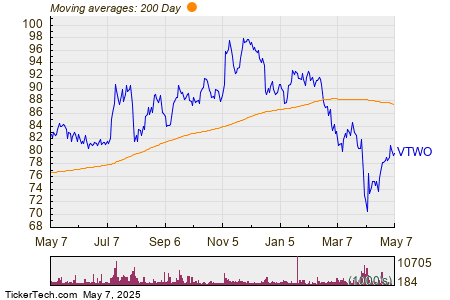AI Adoption Concerns: Nvidia and AMD Show Mixed Signals
The rapid embrace of artificial intelligence (AI) has fueled a bull market for over two years. Recently, however, investors are worried that rising tariffs and a potential slowdown in adoption could curb the rally that has propelled many AI stocks to record levels.
Consider Nvidia (NASDAQ: NVDA). In its fiscal 2025 fourth quarter, which ended January 26, Nvidia reported revenue of $39.3 billion, an impressive increase of 78% year over year. Additionally, the company’s earnings per share (EPS) surged by 82% to $0.89. Typically, such significant results would lead to a stock surge; however, Nvidia’s shares have dropped approximately 14% since the report was released.
Positive Developments from AMD’s Earnings Call
Amid growing investor apprehension regarding AI adoption, Advanced Micro Devices (NASDAQ: AMD) CEO Lisa Su provided encouraging news during AMD’s earnings call. Following the market closure on Tuesday, AMD announced a record revenue of $7.4 billion for the first quarter. This figure signifies a year-over-year growth of 36%, with adjusted EPS reaching $0.96, an increase of 55%. Analysts had projected revenue of $7.12 billion and EPS of $0.93; AMD surpassed both expectations comfortably.
Key to these results was the performance of AMD’s data center segment, which generated $3.7 billion—up 57% year over year. While the client and gaming segments contributed $2.9 billion, client revenue surged by 68% to $2.3 billion. Nonetheless, gaming revenue fell by 30%, totaling $647 million. Notably, AMD’s gross margin expanded to 50%, a growth of 300 basis points from 47% in the prior year’s quarter, mainly due to increased data center revenue and an advantageous product mix.
AMD’s Optimistic Outlook
In addition to strong earnings, AMD issued a robust revenue forecast for the second quarter, anticipating $7.4 billion at the midpoint of its guidance, outperforming analysts’ forecasts of $7.24 billion.
Reflecting on the results, CEO Lisa Su remarked, “We delivered an outstanding start to 2025 as year-over-year growth accelerated for the fourth consecutive quarter, driven by strength in our core businesses and expanding data center and AI momentum.” This positive outlook may bode well for Nvidia.
Implications for the Tech Industry
Beyond AMD, the company’s strong results hold implications for the wider technology sector. The evolution of generative AI has been rapid, supported by high adoption rates. Tech giants continue to build data centers essential for this technology at a breakneck pace.
So, what does this mean for Nvidia? As the leading provider of graphics processing units (GPUs) that accelerate AI, Nvidia has maintained dominant control over the data center GPU market, reportedly holding as much as 98% in recent years. Despite emerging competition, the market’s growth positions Nvidia favorably to capitalize on this transformative shift.
Contrary to the prevailing narrative suggesting a slowdown in AI adoption, many experts confidently predict that AI could generate trillions of dollars over the next five to ten years, though projections vary significantly.
Market Potential for Generative AI
Forecasts suggest that the generative AI market could reach a valuation of $1.3 trillion by 2032. A report by McKinsey & Company indicates that generative AI has the potential to contribute between $2.6 trillion and $4.4 trillion to the global economy over the next decade. Meanwhile, PricewaterhouseCoopers (PwC) estimates the generative AI contribution to be up to $15.7 trillion by 2030.
The key takeaway is clear: while uncertainties exist regarding the exact size of the generative AI market, the opportunities are substantial.
Concerns surrounding slowing AI adoption, uncertainties from tariffs, and restrictions on sales to China have weighed on Nvidia, which has seen its stock decline by 16% since early 2025. With a stock price of 26 times forward earnings, Nvidia presents an appealing investment opportunity amid its expanding profits, showcasing its pivotal role in the AI revolution.
Danny Vena holds positions in Nvidia. The Motley Fool recommends Advanced Micro Devices and Nvidia.
The views and opinions expressed herein are strictly those of the author and do not necessarily reflect the views of Nasdaq, Inc.
